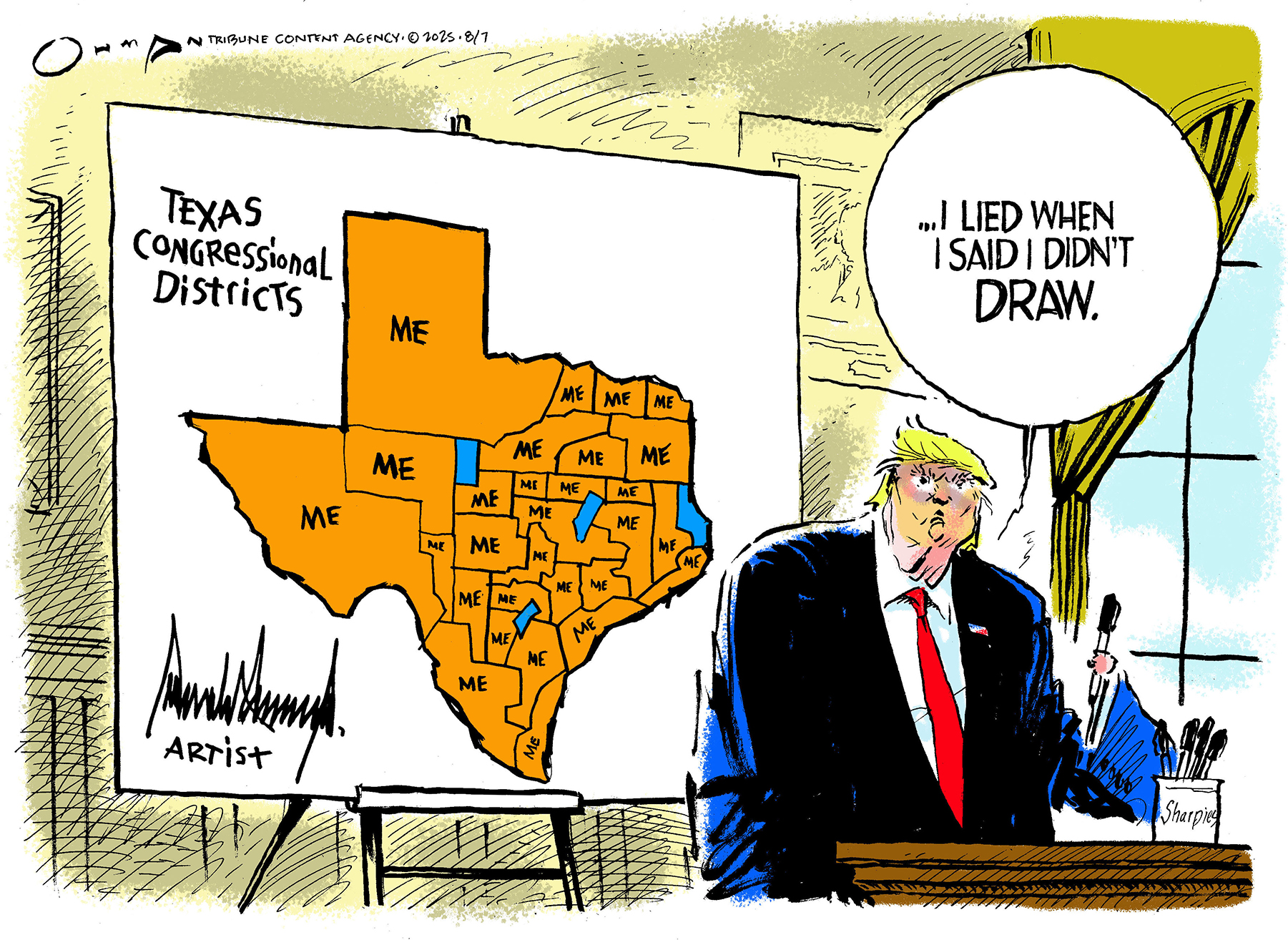The GOP war on college
Will Republicans destroy American universities?


Since 1980, conservatives have used their institutional power to smash one pillar of liberal power and influence at a time. Federalist Society legal automatons have waged a 30-year siege on the federal court system, and are one Supreme Court retirement away from total conquest. The assault on organized labor launched by Ronald Reagan has cut the number of private-sector union members nearly in half since 1983, with Wisconsin's Scott Walker leading the war against public-sector unions.
Now it is the university's turn. The execrable GOP tax bills that got jammed through the House and Senate should be thought of as an airstrike designed to soften up collegiate targets prior to the all-out ground assault. While it's not clear which education-smashing provisions will make it out of the conference and into the final legislation, make no mistake: The invasion is coming. Republicans have long dreamed of drastically decreasing the number of people with access to affordable, reputable higher education, and this might be their last chance to pull it off.
Contemporary conservatives believe students are getting a terrible deal by going to college, and worse, that they are being tormented and brainwashed by out-of-control liberal professors intent on transforming their children into a million little Bernies. Fox News and Breitbart obsessively report every minor speech scuffle on every campus, blowing trivial news items into threats to the republic.
Subscribe to The Week
Escape your echo chamber. Get the facts behind the news, plus analysis from multiple perspectives.

Sign up for The Week's Free Newsletters
From our morning news briefing to a weekly Good News Newsletter, get the best of The Week delivered directly to your inbox.
From our morning news briefing to a weekly Good News Newsletter, get the best of The Week delivered directly to your inbox.
In the right-wing imagination, most universities are authoritarian hellscapes run by a cartel of Marxist students, Maoist professors, and Stalinist administrators. While it is true that Americans with college degrees are more consistently liberal in their political orientation than those without, that is less because of indoctrination than because prolonged encounters with deeply researched realities tend to make it difficult to believe the idea that, for example, climate change is a hoax perpetrated by avaricious scientists and Chinese manufacturers. But for contemporary Republicans and their Manichean approach to public policy, that fact alone makes colleges and universities an enemy to be vanquished.
That's why the GOP tax bills treat the idea of going to college like some municipalities now regard plastic bags and soda. On one end, the House bill targets undergraduates, by eliminating the tax deduction for interest on student loans (this was left out of the Senate version). For most people this might be mostly offset by the proposed increase in the standard deduction to $12,000, but it creates an important precedent: The state no longer considers financing higher education a laudable enough goal to be part of the tax code.
The bill is therefore the first step in reversing all meaningful incentives for individuals to go to college, and will reportedly be paired with caps on student loans and the elimination of a variety of federal grant programs, including one for students who plan to teach in high-need areas after graduation and another that forgives loans for people who go into public service. Both the House and Senate tax bills included provisions that would tax the endowments of certain colleges and universities, which those (mostly elite) schools sometimes use to give needy students a free ride. It's not hard to imagine a future Republican Congress simply eliminating federal student loans altogether and crippling hundreds of public and private universities in the process.
At the other end of the pipeline, the House tax bill shafts graduate students by taxing their tuition waivers as income. Had this provision been in place when I got my Ph.D., I would have graduated with tens of thousands of dollars in debt. This law alone would have been sufficient to discourage me from ever going to graduate school in the first place.
A free daily email with the biggest news stories of the day – and the best features from TheWeek.com
The GOP's fresh assault on higher education comes on the heels of Secretary of Education Betsy DeVos reversing Obama-era regulations that prioritized helping borrowers manage debt rather than helping predatory companies collect it, and that forgave loans for students victimized by the for-profit education industry. It follows decades of decreasing federal aid to state university systems, forcing such institutions to raise tuition and exclude more and more young people from the affordable educations so effortlessly enjoyed by the middle-aged and elderly people currently dismantling the opportunities that made their prosperity possible in the first place. And of course, this assault is taking place in tandem with right-wing governors like Scott Walker deliberately torpedoing their own public higher education systems and treating them like a vanquished campaign opponent. No wonder that just 49 percent of Americans now believe college is worth the cost.
Yet very little of the productive work in academia is performed by the kind of radicals that the War on Christmas crowd fears and loathes. Most professors in the humanities and social sciences bend over backwards to be fair to their conservative students, balance their syllabi with competing ideas, and have no interest in conducting mind erasure on a bunch of 18-year-olds. They mostly do the difficult work of teaching young people how to think critically, perform research, learn second languages, and cultivate a healthy skepticism about the world around them. At research universities public and private, scientists create incredible value for society at large by researching new medicines, technologies, and innovations. Large, land-grant university systems like the ones in Wisconsin, Illinois, Minnesota, and Michigan are unambiguous boons for otherwise struggling Midwestern economies, employing tens of thousands of people and serving as regional economic anchors.
If conservatives succeed in destroying or undermining higher education, they will eventually realize that they have reaped a very bitter harvest indeed. Ironically, well-regarded public university systems are one of the few ways that states like Wisconsin have of convincing young people to stay and settle in-state after college in the first place, or of attracting people from other regions. And thousands of public and private universities are the only thing propping up rural economies in places like Cullowhee, North Carolina, and State College, Pennsylvania. Without their colleges and universities, these towns would be transformed into depressed craters like the Pennsylvania hellhole visited by a Politico Trump whisperer last month, full of marginalized people living desperate, hardscrabble existences, casting about for someone to blame for their misfortunes.
Some further irony: By reducing the aggregate number of Americans with college degrees, Republicans will succeed in making America look more like the Northern European societies they so revile. The United States, in fact, has one of the highest rates of college degree holders in the entire world, far outpacing most of our European counterparts, which mostly lack the dense network of private universities to complement state-run systems. A college degree remains one of the few ways that Americans can move up the class ladder — another thing that horrifies Republicans who increasingly want to lock in the stratified status quo.
This is not to say that all is well with America's system of higher education, whose cost is now out of reach for too many families. The system of loading 18-year-olds up with mortgage-sized amounts of debt is something that desperately needs to be revisited by high-minded policymakers. But like all Republican solutions for pressing public problems, the tax bill will make things worse, rather than better, for individuals seeking higher education, for the colleges and universities that they attend, and for society as a whole.
One of America's two major political parties wants to radically decrease the number of Americans who graduate from college, eliminate ways to pay for it, and instead funnel those social resources to the predatory for-profit education sector or just directly into the pockets of the wealthy. The philosophy of these Republicans is to find any group of people who voted against them and instead of persuading or helping them, destroy them and their livelihoods for sport.
David Faris is an associate professor of political science at Roosevelt University and the author of It's Time to Fight Dirty: How Democrats Can Build a Lasting Majority in American Politics. He is a frequent contributor to Informed Comment, and his work has appeared in the Chicago Sun-Times, The Christian Science Monitor, and Indy Week.
-
 August 9 editorial cartoons
August 9 editorial cartoonsCartoons Saturday's political cartoons include snake oil salesmen, Ghislaine Maxwell's new residence, and more
-
 5 hastily redrawn cartoons about redistricting
5 hastily redrawn cartoons about redistrictingCartoons Artists take on Donald Trump's draughtsmanship, the White House ballroom, and more
-
 Bonnie Blue: taking clickbait to extremes
Bonnie Blue: taking clickbait to extremesTalking Point Channel 4 claims documentary on the adult performer's attention-grabbing sex stunts is opening up a debate
-
 Ghislaine Maxwell: angling for a Trump pardon
Ghislaine Maxwell: angling for a Trump pardonTalking Point Convicted sex trafficker's testimony could shed new light on president's links to Jeffrey Epstein
-
 The last words and final moments of 40 presidents
The last words and final moments of 40 presidentsThe Explainer Some are eloquent quotes worthy of the holders of the highest office in the nation, and others... aren't
-
 The JFK files: the truth at last?
The JFK files: the truth at last?In The Spotlight More than 64,000 previously classified documents relating the 1963 assassination of John F. Kennedy have been released by the Trump administration
-
 'Seriously, not literally': how should the world take Donald Trump?
'Seriously, not literally': how should the world take Donald Trump?Today's big question White House rhetoric and reality look likely to become increasingly blurred
-
 Will Trump's 'madman' strategy pay off?
Will Trump's 'madman' strategy pay off?Today's Big Question Incoming US president likes to seem unpredictable but, this time round, world leaders could be wise to his playbook
-
 Democrats vs. Republicans: which party are the billionaires backing?
Democrats vs. Republicans: which party are the billionaires backing?The Explainer Younger tech titans join 'boys' club throwing money and support' behind President Trump, while older plutocrats quietly rebuke new administration
-
 US election: where things stand with one week to go
US election: where things stand with one week to goThe Explainer Harris' lead in the polls has been narrowing in Trump's favour, but her campaign remains 'cautiously optimistic'
-
 Is Trump okay?
Is Trump okay?Today's Big Question Former president's mental fitness and alleged cognitive decline firmly back in the spotlight after 'bizarre' town hall event
